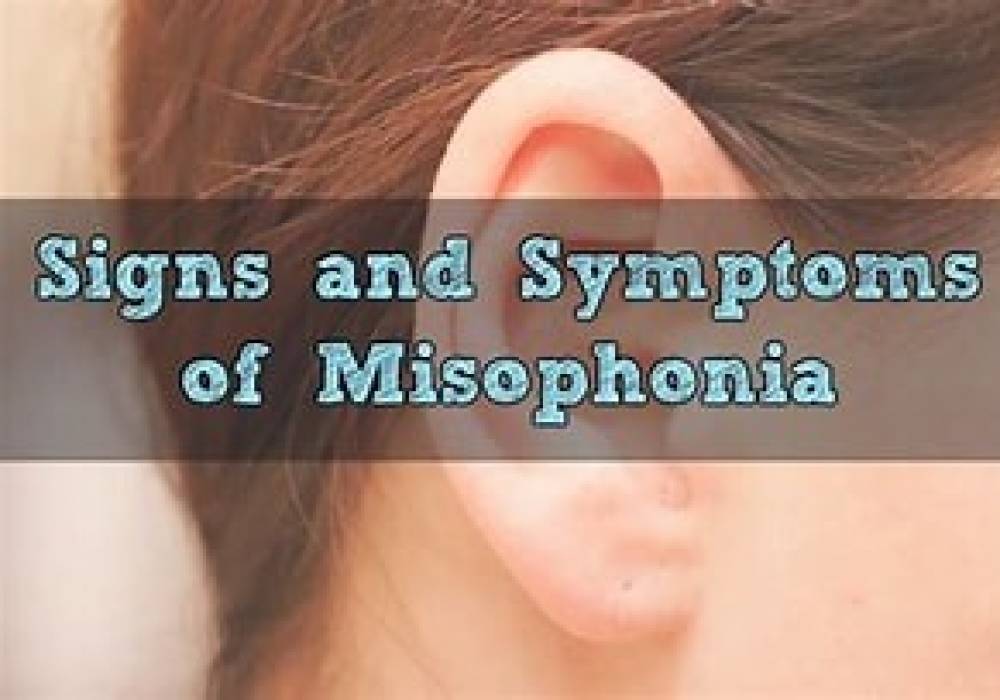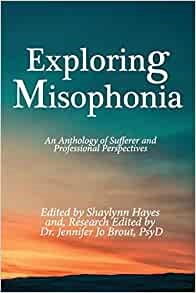News
Misophonia

Misophonia is a condition in which certain sounds trigger emotional or physiological responses, such as anger, anxiety, or disgust. It is also known as selective sound sensitivity syndrome or sound-rage. Misophonia is a relatively new area of research, and there is much that is not yet known about it. However, recent studies suggest that the condition may be more common than previously thought. Misophonia is a neurological condition it is noy yet recognised as a distinct disorder in the Diagnostic and Statistical Manual of Mental Disorders (DSM), but research suggests it is a real and significant condition that affects many people worldwide.
Symptoms
People with misophonia experience strong emotional or physiological reactions to certain sounds. These sounds may include:
- Anger
- Irritability
- Anxiety
- Disgust
- Fear
- Rage
- Panic
- Rapid heartbeat
- Sweating
- Muscle tension
The reactions can be intense and may include anger, anxiety, or disgust. In some cases, the reactions can be so severe that they interfere with daily life.
Common triggers for misophonia include the sound of chewing, breathing, swallowing, tapping, typing, or clicking. The sight of repetitive movements such as foot-tapping or pen-clicking can also be triggers for some individuals.
Prevalence Studies suggest that misophonia affects approximately 20% of the population in the UK (Edelstein et al., 2020). It appears to be more prevalent in females and often begins in childhood or adolescence (Cavanna & Seri, 2015).
Causes
The exact causes of misophonia are not yet fully understood, but research suggests that it may be related to an abnormal functioning of the central auditory system in the brain (Cavanna & Seri, 2015). It may also be related to an underlying anxiety or sensory processing disorder.
Management/Treatment
Currently, there is no known cure for misophonia, but there are various treatment options that can help to manage the symptoms. Cognitive-behavioural therapy (CBT) has been shown to be effective in reducing the emotional responses to triggers and sounds (Edelstein et al., 2020).
Strategies that can help manage the symptoms include:
- Avoidance: If certain sounds trigger a reaction, it may be helpful to avoid situations where those sounds are present. For example, if chewing sounds trigger a reaction, it may be helpful to eat alone or in a quiet place.
- Relaxation techniques: Practicing relaxation techniques, such as deep breathing or meditation, can help reduce anxiety and stress.
- Sound therapy: Some people find that listening to white noise or other soothing sounds can help reduce the intensity of their reactions to trigger sounds.
- Support groups: Joining a support group can provide a safe space to share experiences and coping strategies with others who have misophonia.
- using noise-cancelling headphones
- listening to music, calming sounds such as sounds in nature like falling rain, or white noise.
- distraction with a calming mantra or affirmation
Tips for managing misophonia symptoms
- Identify your triggers and avoid them where possible.
- Use noise-cancelling headphones or earplugs in noisy environments.
- Engage in relaxation techniques such as deep breathing or progressive muscle relaxation.
- Use cognitive restructuring to change your thoughts and feelings about the triggers.
- Seek support from family, friends, or a mental health professional.
Conclusion
Misophonia is a real and significant condition that can have a significant impact on a person's quality of life. If you or someone you know is experiencing symptoms of misophonia, it is important to seek professional help. With the right treatment and support, it is possible to manage the symptoms and improve your overall well-being.
References:
Cavanna, A. E., & Seri, S. (2015). Misophonia: current perspectives. Neuropsychiatric disease and treatment, 11, 2117–2123. https://doi.org/10.2147/NDT.S81438
Edelstein, M., Brang, D., Rouw, R., & Ramachandran, V. S. (2020). Misophonia: physiological investigations and case descriptions. Frontiers in human neuroscience, 14, 592679. https://doi.org/10.3389/fnhum.2020.592679
Useful resources
International Misophonia Research Network — soQuiet :: Misophonia Advocacy
Being curious about misophonia | BPS
Misophonia Awareness - Misophonia Institute
MISOPHONIA UK - Home page (misophonia-uk.org)
Suggested Reading

